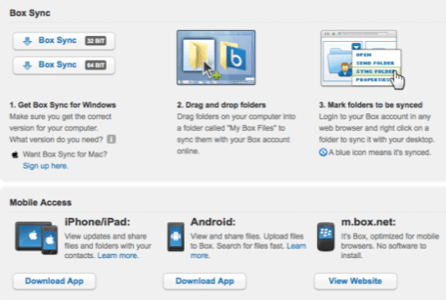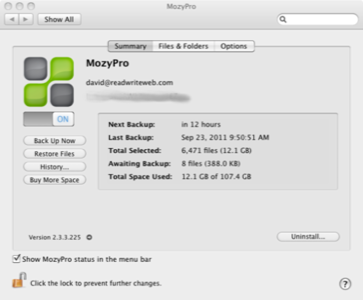With the onset of Apple’s iCloud (see our article here on how to get started) and a series of other announcements and enhancements this week from Box, Mozy, SOSonline and others, it is time to re-examine what you can get from storing your files in the cloud.

I have used dozens of cloud storage services over the past several years, and I keep hoping that someone will put all my favorite features together in a single service. While vendors are making improvements, no one has the perfect cloud drive, at least not yet.
Here are my requirements for building the best possible cloud drive.

- Effortless synchronization. Most of the providers require you to download a piece of software to start the synchronization process. (Apple builds theirs into iTunes.) Then you have to select which files and folders you want to synch up. Some providers have made this process easier than others. Some have their fine print: Google Docs Synch works only with Windows versions of Microsoft Office. Box.net has recently added synchronization, you can see the control panel for setting it up here:
- Equivalent functionality on Web, Mobile, Mac and Windows clients. This is a big one, and it can be maddening to find out that the Mac version is missing a critical feature, such as synch as noted above. Of course, Apple is just focused on its iUniverse. Mozy’s Data Shuttle, announced last week, works differently between its Windows and Mac versions. More vendors are now providing support for smartphones and tablets too.
- WebDAV support. I would like my cloud drive to appear in my Windows Explorer as just another drive on my network, and one easy way to do this is with WebDAV protocols. MyDocsOnline.com, FliesAnywhere.com and DataDepositBox.com have had this for many years, but they seem to be in the minority.
- Extensible APIs. The best of the bunch is Box.net, who have plug-ins galore for all sorts of activities. Dropbox also has extensive information for developers here. Others have few if any means of accessing all this content.

- Unlimited versioning of your files. Say you overwrite the version of the file that you wanted to use by mistake. Some of the services, including SOSonline, allow you to rollback to this previous version. Mozy and others limit you to the versions you have created in the last month. (You can see their control panel below.)
- Easy to understand storage quotas. The music-oriented cloud drives, such as Amazon and Apple, are trying to emphasize that if you purchase your tunes from them, they are stored for free and don’t count towards your storage quotas. The same is true for Google Docs: if you create your document in their native format it doesn’t count towards your quota; versus uploading some Office file from your desktop, which does count. This just complicates matters. I want my cloud drive storage quotas easy to figure out, so I know when I am about to cross into a higher pricing tier. Some of the services, such as Trend Micro SafeSync, JungleDisk and Crashplan, among others, offer unlimited storage space. Others offer bonuses if you complete certain tasks or spam your friends with invites, like Dropbox.
- Know your file size limits. Some services don’t let you upload big files: Amazon’s Cloud caps at 2 GB, and Microsoft’s Skydrive is at 50 MB. That is just plain annoying.
- Facebook account backup. The latest version of SOSonline can backup your Facebook data and restore to your account. More providers should incorporate this feature.
- Effortless document sharing. Sharing one of my Google Docs can be painful, depending on whom I intend to share with and what Google Account I select. Some of the other services have easier ways to share documents, and even allow real-time editing as Google does.
- Streaming support. The music-oriented services, such as iCloud and Amazon’s Cloud Drive, are now getting into streaming your tunes from the cloud. Some other providers are adding this feature too and including slideshows and video streaming.
- Enterprise support. Can a single account support multiple users, and have a common or separate storage quota? Are there special admin tools available? Can I protect the content on my servers in addition to my desktops? Can I synch content from an external or network drive? Box and some others excel at this.
Granted, this is a long list. As the cloud drive providers mature and as they blend collaboration, music streaming and backup features, expect more announcements. So do any of the services come close to fulfilling your needs?

















